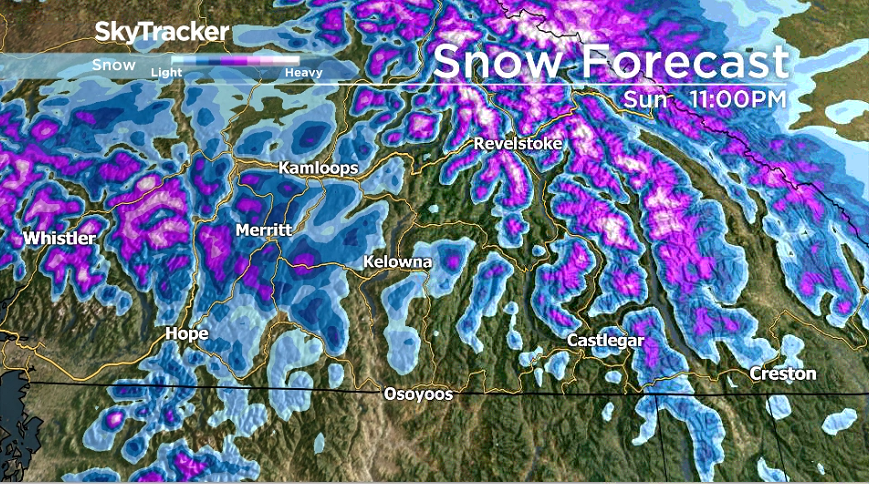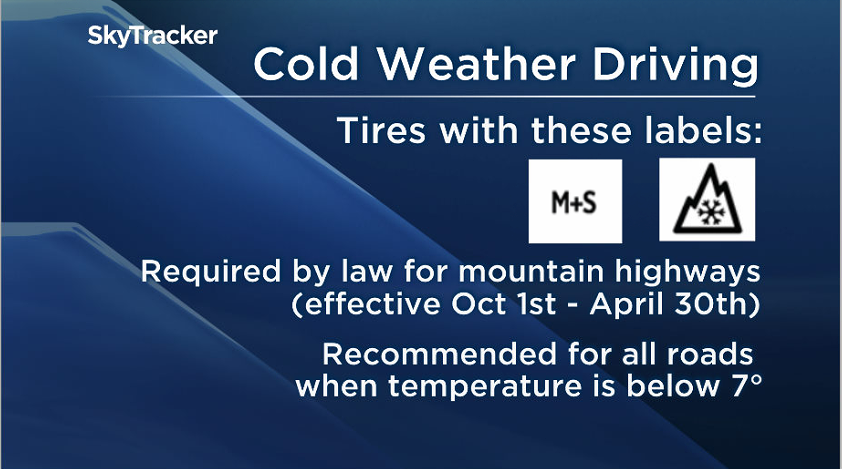If you plan on travelling to or from B.C.’s Southern Interior this Thanksgiving weekend, be prepared for snow.

On Friday, Environment Canada issued a special weather statement calling for snow on most southern highway passes.
“Precipitation from the system will start as rain on Saturday afternoon, and then as snow levels drop, it will change to snow on Saturday night or Sunday morning,” the national weather agency said in its statement at 12:39 p.m.
“The snow is expected to continue through Sunday evening. Total snow accumulations of 10 to 15 cm can be expected, with the highest amounts over higher elevations.”
The highway passes include:

Get daily National news
- Coquihalla, from Hope to Kamloops
- Highway 3, Paulson Summit to Kootenay Pass
- Okanagan Connector, from Merritt to Kelowna
- Trans-Canada Highway, from Eagle Pass to Rogers Pass
Global News meteorologist Kristi Gordon said ‘the precipitation will start as rain and then transition to snow near the summits between 1,400 and 1,800 metres as early as Saturday evening. Some areas may not see the transition to snow until Sunday morning.”
The Coquihalla has a peak elevation of 1,230 metres, while the Okanagan Connector tops out at 1,717 metres.
On Highway 3, Paulson Summit is 1,446 metres, while Kootenay pass is 1,781 metres.
On the Trans-Canada Highway, Eagle Pass is 550 metres while Rogers Pass is 1,330 metres.

On Oct. 1, provincial rules came into effect that snow tires or winter chains are mandatory on most routes in B.C., until March 31, though some routes are extended until April 30.
“The start of the snow season can be dangerous because many drivers are not aware snow is possible and have not yet changed over to snow tires,” said Gordon.
“Travellers should be warned it is required by law to have snow tires if you are travelling any of the mountain highways as of October 1st.”
- ‘Alarming trend’ of more international students claiming asylum: minister
- TD Bank moves to seize home of Russian-Canadian jailed for smuggling tech to Kremlin
- Why B.C. election could serve as a ‘trial run’ for next federal campaign
- Justin Trudeau headed to UN Summit of the Future amid international instability










Comments